Filter by

Ocean Thermal Energy Conversion (OTEC): Past, Present, and Progress
The 21st century is characterized as an era of natural resource depletion, and humanity is faced with several threats due to the lack of food, energy, and water. Climate change and sea-level rise are at unprecedented levels, being phenomena that make predicting the future of ocean resources more complicated. Oceans contain a limitless amount of water with small (but finite) temperature differen…
- Edition
- -
- ISBN/ISSN
- 9781789855715
- Collation
- -
- Series Title
- -
- Call Number
- -

Hydrohumanities: Water Discourse and Environmental Futures
A free open access ebook is available upon publication. Learn more at www.luminosoa.org. Discourse about water and power in the modern era have largely focused on human power over water: who gets to own and control a limited resource that has incredible economic potential. As a result, discussion of water, even in the humanities, has traditionally focused on fresh water for human use. Today, cl…
- Edition
- -
- ISBN/ISSN
- 9780520380462
- Collation
- -
- Series Title
- -
- Call Number
- -

A Relation, or Journal, of a Late Expedition, &c.
The books in the Florida and the Caribbean Open Books Series demonstrate the University Press of Florida’s long history of publishing Latin American and Caribbean studies titles that connect in and through Florida, highlighting the connections between the Sunshine State and its neighboring islands. Books in this series show how early explorers found and settled Florida and the Caribbean. They…
- Edition
- -
- ISBN/ISSN
- 9781947372160
- Collation
- -
- Series Title
- -
- Call Number
- 070.5 KIM r
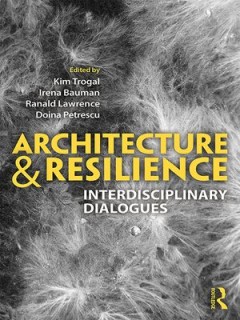
Architecture and Resilience: Interdisciplinary Dialogues
Resilience will be a defining quality of the twenty-first century. As we witness the increasingly turbulent effects of climate change, the multiple challenges of resource depletion and wage stagnation, we know that our current ways of living are not resilient. This volume takes resilience as a transformative concept to ask where and what architecture might contribute. Bringing together cross-di…
- Edition
- -
- ISBN/ISSN
- 9781351659666, 1351659669
- Collation
- -
- Series Title
- -
- Call Number
- 720
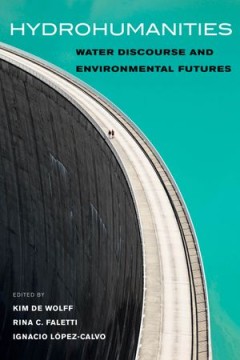
Hydrohumanities
A free open access ebook is available upon publication. Learn more at www.luminosoa.org. Discourse about water and power in the modern era have largely focused on human power over water: who gets to own and control a limited resource that has incredible economic potential. As a result, discussion of water, even in the humanities, has traditionally focused on fresh water for human use. Today, cl…
- Edition
- -
- ISBN/ISSN
- 0520380460, 9780520380462
- Collation
- -
- Series Title
- -
- Call Number
- -
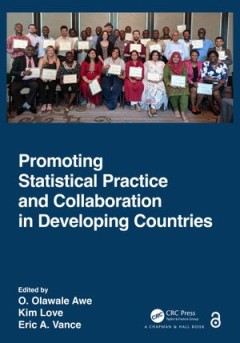
Promoting Statistical Practice and Collaboration in Developing Countries
Promoting Statistical Practice and Collaboration in Developing Countries provides new insights into the current issues and opportunities in international statistics education, statistical consulting, and collaboration, particularly in developing countries around the world. The book addresses the topics discussed in individual chapters from the perspectives of the historical context, the present…
- Edition
- -
- ISBN/ISSN
- 9781000594416
- Collation
- -
- Series Title
- -
- Call Number
- -
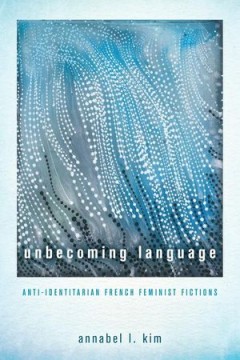
Unbecoming Language: Anti-identitarian French Feminist Fictions
In Unbecoming Language, Annabel L. Kim examines a corpus of French literature writing against difference. Inaugurated by Nathalie Sarraute and sustained in the work of Monique Wittig and Anne Garréta, this corpus highlights three generations of the twentieth and recent twenty-first centuries and the direct chain of influence between them. Kim considers these writers, and the story of literatur…
- Edition
- -
- ISBN/ISSN
- 9780814213841
- Collation
- -
- Series Title
- -
- Call Number
- -

Wealth Creation without Pollution : Designing for Industry, Ecobusiness Parks…
The development of eco-industrial parks and associated ‘ecological industry’ concepts offer progressive integrated approaches to resolve pollution problems from effluents and wastes of all kinds. Most industry however is now located in business parks and industrial estates, with relatively few industries having direct discharges of process effluents to the water environment. But that does n…
- Edition
- -
- ISBN/ISSN
- 9781780408330
- Collation
- -
- Series Title
- -
- Call Number
- 650
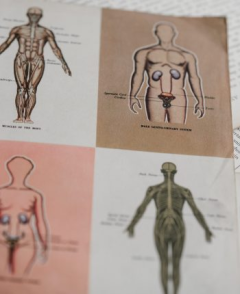
Building a Medical Terminology Foundation
Building a Medical Terminology Foundation is an OER that focuses on breaking down medical terms into their word parts, pronouncing medical terms, and learning the meaning of medical terms within the context of introductory anatomy and physiology.
- Edition
- -
- ISBN/ISSN
- -
- Collation
- -
- Series Title
- -
- Call Number
- 610.7
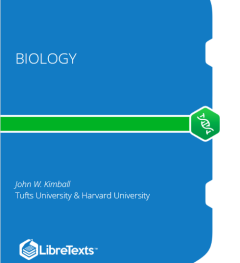
 Computer Science, Information & General Works
Computer Science, Information & General Works  Philosophy & Psychology
Philosophy & Psychology  Religion
Religion  Social Sciences
Social Sciences  Language
Language  Pure Science
Pure Science  Applied Sciences
Applied Sciences  Art & Recreation
Art & Recreation  Literature
Literature  History & Geography
History & Geography